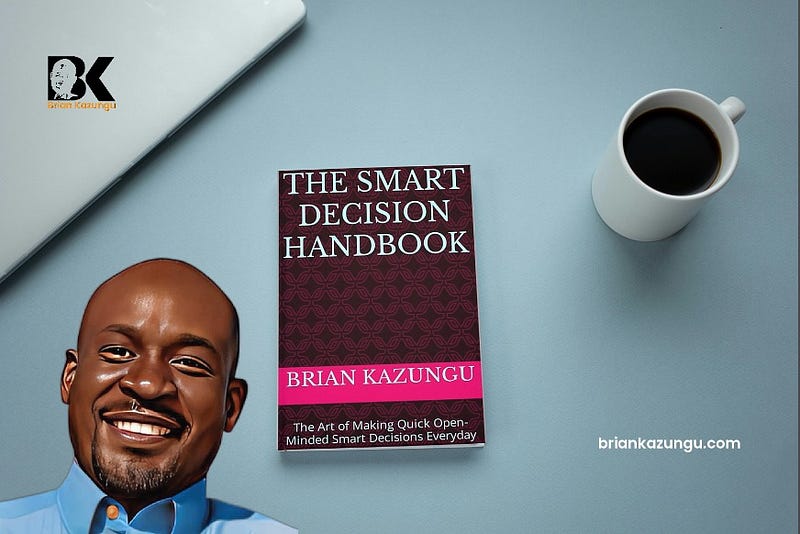
The Art of War is one of the books that have been well embraced by readers across the world because of its mind transforming effect especially when it comes to both business and personal development.
For example, The Art of War is among some of the greatest literary works whose content has been widely adopted in the corridors of power by business executives, high ranking military personnel and even by some of the world’s greatest leaders because of the winning strategies therein.

When you first read this book, you may think it’s just a military strategy resource for army generals, but if you soak your mind deep into its content, you will realize it’s actually a thinking and decision tool that can be used by anyone in fighting life’s challenges.
In The Art of War, General Sun Tzu advocates for the adoption of a broader perspective when dealing with an issue since he believed that much of the failures in the battlefield are correlated to shortsightedness or narrow-mindedness.
As shown by the highlighted and italicized text below, General Sun Tzu referred to such shortsightedness or narrow-mindedness as few (less) or no calculation
Now the general who wins a battle makes many calculations in his temple before the battle is fought. The general who loses a battle makes but few calculations beforehand. Thus do many calculations lead to victory, and few calculations to defeat: how much more no calculation at all! It is by attention to this point that I can foresee who is likely to win or lose. — The Art of War.
Quite often, a number of those people whom Sun Tzu refers to as making less calculations or no calculations at all or those referred to as narrow-minded or shortsighted generally lack the necessary training and resources to help them connect the dots in the matrix of life.
In most circumstance, these people have only two dots to connect, of which they themselves are the first dot and the immediate image conjured by their mood or state of excitedness is the second dot.
If something excites them, they do it, and if something doesn’t excite them, they won’t do it regardless of the far-reaching consequences of their action or in-action.
As a result of the obvious negative consequences which they encounter because of their narrow-minded approaches, such people are oftentimes labelled as selfish, stupid or foolish, and yet it is not their informed choice to pile up misery upon themselves.
The main reason behind their ‘selfish, stupid or foolish’ decisions and behavior is that their conscience has not yet been awakened to the existence of other several dots which must be connected in the matrix of life towards making sound decisions.
However, fortunate enough, such people who make less calculations or no calculations (narrow-minded or shortsighted) can have their mind trained and can also be given the resources to help them connect the dots which they might not have believed existed.
This is the reason why I came up with The Smart Decision Toolkit, which is found in my book, The Smart Decision Handbook.

The Smart Decision Toolkit is based on the Fundamental Congruence Checklist which is basically a set of ten questions that helps people to be objective and open-minded in their decision making.
I came up with this checklist because I believe that when people make informed decisions after factoring in many important variables, they will resultantly act smart and consequently experience better outcomes.
The opposite is also true, since, when people make narrow minded decisions, they will unintentionally engage in unwise acts which have negative consequences.
Some people, through the way they are raised by their parents or because of the influence of education, religion and culture may learn to be open-minded and objective at an early age but some will remain drenched in the blinding fantasies of life to their own disadvantage.
General Sun Tzu is not the only great thinker who advocated for open-minded reasoning in the pursuit of objectives, since those who read the Bible for various and different reasons may be aware of some scriptures which contain the same type of advice that helps to connect the dots.
For example, Proverbs11 vs.14 and Luke 14 vs.28–32 have a similar context to what Sun Tzu talked about in the Art of War.
Proverbs 11vs.14: Where no counsel is, the people fall: but in the multitude of counsellers there is safety. KJV

The importance of the Bible text above relative to what General Sun Tzu said is that from a multitude of ‘counsellers’ you get different and multiple perspectives which helps you to make the best decisions rather than looking at something through your own lenses only.
More-so, in the Bible text below, people are advised to ponder or think through something rather than to hurriedly decide and act without considering the consequences of your actions. This approach helps you to minimize (avoid) failure and disappointment.
Luke 14 vs.28–32 For which of you, intending to build a tower, sitteth not down first, and counteth the cost, whether he have sufficient to finish it? 29: Lest haply, after he hath laid the foundation, and is not able to finish it, all that behold it begin to mock him. 30: Saying, This man began to build, and was not able to finish. 31: Or what king, going to make war against another king, sitteth not down first, and consulteth whether he be able with ten thousand to meet him that cometh against him with twenty thousand? 32: Or else, while the other is yet a great way off, he sendeth an ambassage, and desireth conditions of peace.

Among the advantages of the Smart Decision Toolkit’s Fundamental Congruence Checklist is that you can adopt it as a framework for objective and open-minded reasoning since it seeks to answer critical questions that help you to make informed decisions and take the right action.
The Fundamental Congruence Checklist enables you to make many calculations of which Sun Tzu believed that in such an approach lies the highest chances of victory.
Below is a template of the ten questions which makes the Smart Decision Toolkit a multi-versatile decision-making tool that can be used to gauge the relevance, effectiveness, and impact of anything in life:
1) What is this thing? Who is this person?
2) What does he/she/it do and how? — What are the key result areas or objectives and how are they accomplished?
3) Why does he/she/it do so? — Why are those the key result areas, objective, or purpose?
4) What happens if he/she/it does do not anything or does not perform as expected?
5) Where is this thing or person situated in the whole matrix — what position does he/she/it occupy?
6) Why is he/she/it situated there? — Why is he/she/it occupying that space?
7) What happens if he/she/it is completely removed, moved somewhere, misplaced or even altered?
8) Who is in charge of him/her/it and why? — Who makes he/she/it work as planned?
9) How is his/her/its effectiveness assessed? — How do I or other people know if he/she/it is effective or not?
10) What happens if he/she/it is effective or not — What are the related consequences?
By answering the questions on this Congruence Checklist, you will be able to clearly define the purpose of anything and then determine its relevance and interconnectedness to other things which are dear to you before you commit your energy, time, and resources to it.

When you don’t ask yourself these questions, you are most likely to make impulsive decisions out of emotions (excitement) and do things that are very costly and regrettable.
The Decision Toolkit’s Congruence Checklist gives you a broader perspective when you want to make a decision on a certain matter especially regarding issues that has an effect on your health, time, money and other resources.
A Congruence Checklist helps to reveal the probable consequences of your decision on various other aspects of your life, i.e. the financial, emotional, or spiritual implications of your decisions and actions.
As such, if you want to make an important decision such as starting a business, getting into a partnership, getting married/divorced, quitting your job, voting for a politician, or even buying an asset, you need to ask yourself these ten questions before you make that final decision.

The main advantages of this checklist as a decision tool are that the first three questions focus on clarity on the subject matter by shedding light on the definition, purpose and processes associated with whatever you are dealing with.
The focus on these three issues helps with assurance/confidence on the fact that whoever is making a decision is doing so on a subject that he/she clearly understands.
Question Four (4) on the checklist helps the decision maker to be open-minded enough to understand that despite good intentions, some missions fail, and thus, the mind should be prepared from the beginning to be accountable for such failures and to also come up with Plan B or even C.
The fifth, sixth and seventh questions on the checklist has a ‘Pareto’ effect in that it deals with essence and relevance as a way of evaluating the worthiness of consideration, adoption, and implementation on any subject matter.
These three questions focus on the assessment of importance. When you answer these questions, you will be able to understand if whatever you are dealing with is really worthy your time, money, energy and resources.
Question Eight (8) seeks to identify a person or group of people who are responsible for the implementation of a certain resolution, and also shows us those individuals that are tasked with the mandate of making sure that everything goes as planned (oversight).
The nineth and tenth question seek to address the issue of effectiveness, results and impact, since resolutions that are adopted without clarity on these issues are very costly in terms of time, energy, money and other resources.
The Smart Decision Toolkit ensures that people make openminded decisions and take informed action which they are accountable for and thus promotes the adoption and implementation of good morals and best Corporate Governance practices in both the private and public sector.
Those who make decisions without the use of any decision framework or toolkit, whether in their individual capacity or as a group in an organisation tend to act whimsically (emotionally) than logically at the expense of their stakeholders i.e. family, friends, or shareholders.

It is therefore critically important for you to add The Art of War and The Smart Decision Handbook to the list of books which you must read in order for you to become an objective and open-minded thinker who decisions and actions can transform the world into a better place for all.
For training and assistance on how to effectively use the Smart Decision Toolkit (Fundamental Congruence Checklist), contact me on — [email protected]




 They made it seem I intentionally killed the child — Lil Win decries media repor...
They made it seem I intentionally killed the child — Lil Win decries media repor...
 KT Hammond to lay LI on cement price regulation after manufacturers boycotted st...
KT Hammond to lay LI on cement price regulation after manufacturers boycotted st...
 Reserve a quota for cadet corps when recruiting - Bawumia tells security service...
Reserve a quota for cadet corps when recruiting - Bawumia tells security service...
 My dollar advice was honest, not speculative – Isaac Adongo replies Dr. Amin Ada...
My dollar advice was honest, not speculative – Isaac Adongo replies Dr. Amin Ada...
 Free SHS Bill: Lack of rigorous stakeholder consultation unfortunate – Minority
Free SHS Bill: Lack of rigorous stakeholder consultation unfortunate – Minority
 ‘You’ll lose our votes if you stick with 'arrogant' NAPO as running mate’ – Pro-...
‘You’ll lose our votes if you stick with 'arrogant' NAPO as running mate’ – Pro-...
 Akufo-Addo being insensitive to Ghanaians' plight with continuous ministerial ap...
Akufo-Addo being insensitive to Ghanaians' plight with continuous ministerial ap...
 ‘We will not, and cannot be part of this process’ – Minority boycotts vetting of...
‘We will not, and cannot be part of this process’ – Minority boycotts vetting of...
 Election 2024: We’ll win based on loyalty, dedication of our members — Fifi Kwet...
Election 2024: We’ll win based on loyalty, dedication of our members — Fifi Kwet...
 Nine out of every 10 Ghanaian rents yet gov’ts have failed to address the challe...
Nine out of every 10 Ghanaian rents yet gov’ts have failed to address the challe...
